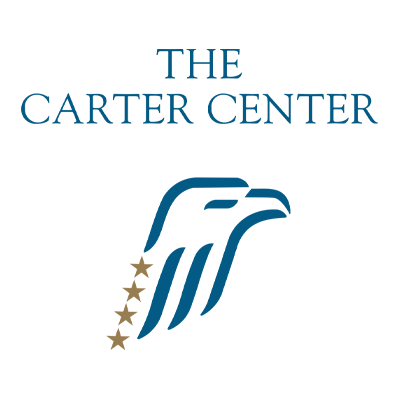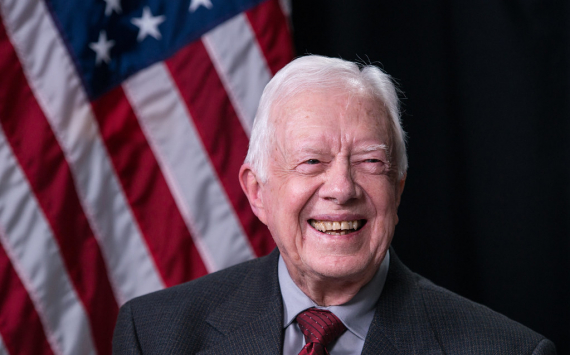Description
The Carter Center is a nongovernmental, not-for-profit organization founded in 1982 by former U.S. President Jimmy Carter. He and his wife Rosalynn Carter partnered with Emory University just after his defeat in the 1980 United States presidential election. The center is located in a shared building adjacent to the Jimmy Carter Library and Museum on 37 acres (150,000 m2) of parkland, on the site of the razed neighborhood of Copenhill, two miles (3 km) from downtown Atlanta, Georgia. The library and museum are owned and operated by the United States National Archives and Records Administration, while the center is governed by a Board of Trustees, consisting of business leaders, educators, former government officials, and philanthropists.
The Carter Center's goal is to advance human rights and alleviate human suffering, including helping improve the quality of life for people in more than 80 countries. The center has many projects including election monitoring, supporting locally led state-building and democratic institution-building in various countries, mediating conflicts between warring states, and intervening with heads of states on behalf of victims of human rights abuses. It also leads disease eradication efforts, spearheading the campaign to eradicate Guinea worm disease, as well as controlling and treating onchocerciasis, trachoma, lymphatic filariasis, and malaria through awareness campaigns.
In 2002, President Carter received the Nobel Peace Prize for his work "to find peaceful solutions to international conflicts, to advance democracy and human rights, and to promote economic and social development" through the Carter Center. In 2007, he wrote an autobiography entitled Beyond the White House: Waging Peace, Fighting Disease, Building Hope, which chronicles the first 25 years of The Carter Center.
























